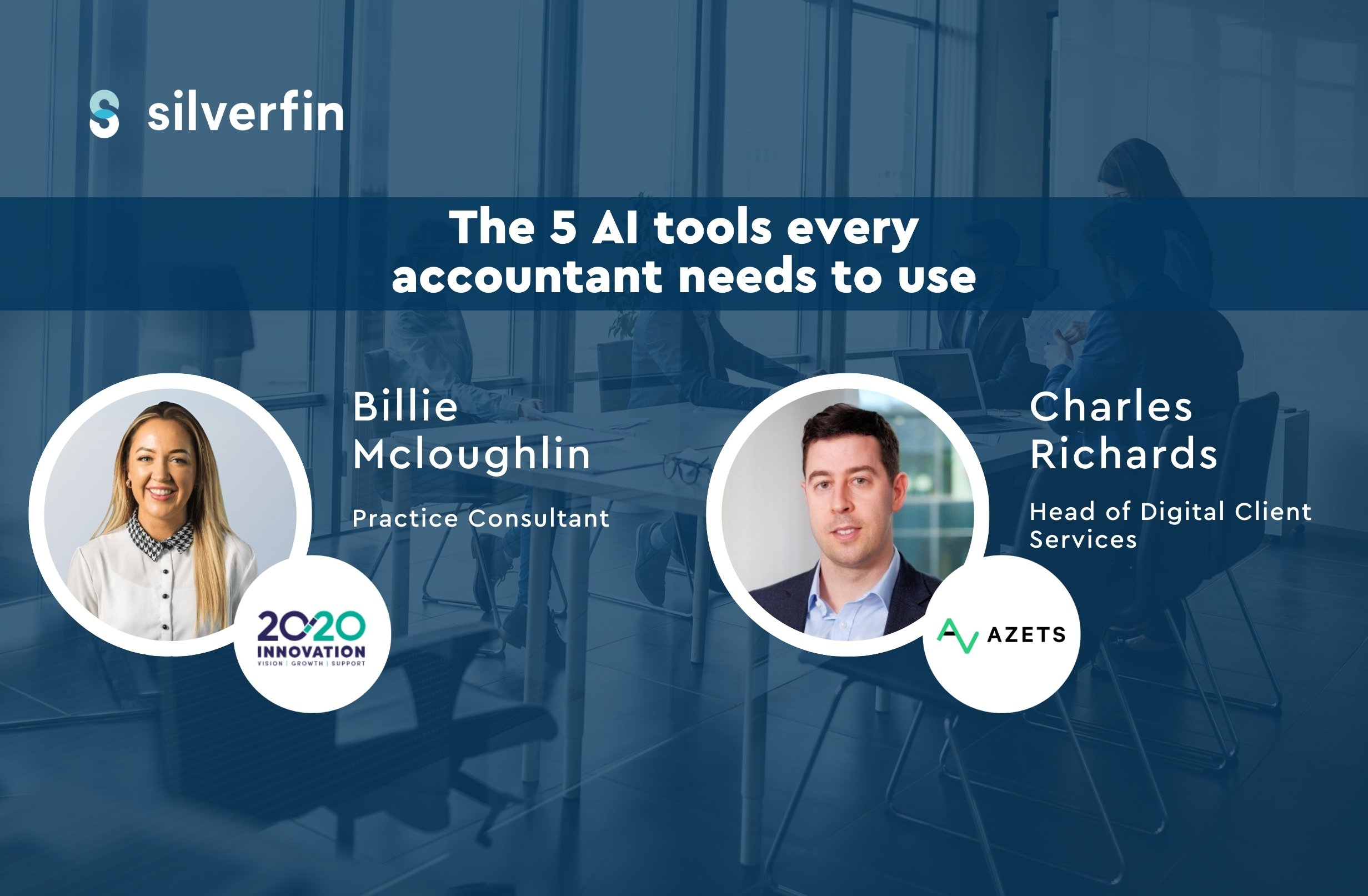Are we seeing the death of advisory – and the associated role of the accountant as strategic business advisor? No but we are seeing a change in what advisory is and how it is delivered.
The accounting industry has been fixated upon advisory with a capital A for many years now. The creation and delivery of a discrete set of specific services labelled as Advisory, paid for separately from compliance and perhaps even delivered by different people in the firm. However, when we spoke to our customers about Advisory, their overwhelming response was that things had (or needed) to move on. Many are no longer speaking or thinking about advisory in this way.
Why ‘A’dvisory is dead
Advisory has become a very loaded term, with everyone in the industry talking about the topic. It’s been proclaimed as the future of accounting since we started Silverfin 10 years ago—but hardly anything has actually changed in that time.
Our Technology Trends research shows that every year for the past three years, most firms have said that in the future, the bulk of their revenue will come from advisory. But every year, the number of firms that achieve this has pretty much stayed the same. So is advisory all talk and no action? Is it just a myth? Or is it indeed, dead? Do clients really want these services?
Yes clients need advice, they just might not need ‘A’dvisory services.
Conversations are the new advisory
When we say advisory is dead, this doesn’t mean that firms should solely focus on compliance. Instead, we need to reframe how we perceive advisory, understanding that any additional non-compliance-related value that accountants provide first starts with a conversation. Conversations might not be as exciting or new as advisory once was, but conversations are the catalyst to unlocking greater value for clients and for your firm. Once we recognise this, everything else falls into place.
The Cambridge Dictionary defines a conversation as a “talk between two or more people in which thoughts, feelings, and ideas are expressed, questions are asked and answered, or news and information is exchanged”. The key aspect to remember is that conversations involve exchanging and developing ideas. So, when firms speak to their clients, they need to remember that a conversation is not a one-way street—it’s not about accountants talking and clients listening. It is also a time when news or new ideas are shared and explored.
Conversations seek to build understanding and mutual respect, to exchange benefits, insights or experience. Firms might ask their clients what their long-term goals are, while clients might ask how firms have helped similar companies grow in the past.
These questions will spark ideas, which can then spark revenue-generating (or cost-saving) opportunities. The most important element of these conversations isn’t just to pass on information or explain some numbers, but to make it a meaningful interaction.
That sounds a lot like advice or advisory to me.
So what about the issue of using advisory conversations as a new revenue stream. Think about it. If having a conversation in a meaningful way creates an opportunity to sell new services or bill for more time, then it follows that if you want more revenue, you should have more conversations. Once you develop your relationship with your clients and master the art of having valuable conversations with them, you should have them all the time. The more you talk with your clients, the more questions it will spark, the more revenue it will generate, and you’ll deliver more value to your clients.
It’s a win-win situation for client and firm.
How to become a conversation-led firm
You can’t have more conversations unless you’re continuously on top of how your clients are performing. If you want something to talk about, your clients’ numbers should be up-to-date all the time—not just once a year. You should be talking about what is happening now, not what was happening months ago or even last year. Plus if you keep your clients up-to-date all the time, not annually, you benefit from more consistent and steady work load across the year. An end to the intense pressures associated with annual submissions not only means a more healthy balance for your teams but it also makes resourcing a lot easier.
Armed with constantly up-to-date data, you’re able to look at what is happening now and also explore how lessons from the past may inform the future. This will help you have meaningful, two-way, structured conversations. That last point—structure—is crucial.
Client conversations are rarely structured. They may be structured on an individual basis, with each partner applying their own framework according to their style and personality, and sometimes that structure is passed on from the partner to the junior. However, there’s rarely a standard format for the conversation across a firm.
We’re not saying that the conversation should be scripted, stilted, controlled, or even robotic. Not at all. We’re all humans, so our conversations need to be human. But if there is a shared structure, toolkit and data created to drive these conversations with enough flexibility to make it natural, then that conversation becomes repeatable.
A common structure for these advisory conversations (with a small ‘a’) means all of your clients will have a consistent experience and know what to expect from your firm. Most importantly, it means that the success of any given conversation isn’t solely dependent on an individual’s style or personality.
Beyond ensuring conversations are repeatable and deliver a consistent experience, having a structure ensures the relevant questions are triggered. You can’t always predict what advice you will give each client in advance—but you can provide them with information that enables them to ask the right questions for their business.
Structure also helps you to efficiently train your people, providing juniors with a set framework, data and toolkit to follow. Associates shouldn’t have to go through an undefined rite of passage before they can start having these types of conversations with clients. Or worse still – have to defer the right to an advisory conversation to the partner or senior on their account, delegating their contribution in the minds of their client. And minimising your opportunities to advise.
Ensuring your conversations follow a repeatable structure, are informed by data and the collective wisdom of the firm in report form, you can iterate on your approach and continue to optimise it. Tweak something here, change something there, and see how these changes affect the final outcome.
Conversations are the key to advisory success
We should no longer be talking about advisory as this discreet (somewhat ill defined) set of services delivered by specific individuals in the firm authorised to dispense insight and knowledge. We should instead focus on having the whole team engaged in continuous structured conversations with clients informed by easy access to the data, insights and experience they need to serve the needs of their clients.
We’re incredibly excited about this idea at Silverfin, as it’s a logical extension of what we’ve been working on all along. Building powerful data stores that drive insights. Automating complex compliance work to free up time to dig into this data to unlock insights. And finally creating the analytics and reporting tools – not to mention collaboration tools – required for the delivery of advisory conversations at scale.
Book a demo with a member of our team to find out more about how Silverfin can spark valuable client conversations in your firm.














